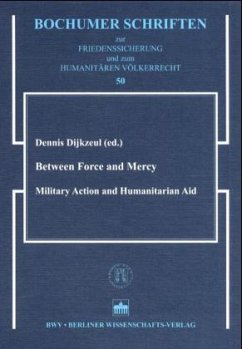Over the last two decades the nature of humanitarian interventions has changed. The relationship between military and humanitarian organizations has evolved rapidly, particularly with the geo-political shifts that occurred following the end of the Cold War. The climate for humanitarian action in Iraq in 1991 was very different from the one that currently exists. In many crisis situations it is likely that both parties will have to deal with each other sooner or later. Yet, the military-humanitarian relationship has often been difficult and, at times, antagonistic. In the field, however, pragmatic cooperation tends to prevail after a while. In a few instances - Somalia, for example - humanitarian organizations have actually promoted military intervention.This volume places the changing interaction between military and humanitarian organizations in the broader context of international political change, the political economy of wars and weak states. It brings together American and European authors with very different backgrounds-from the Pentagon and the British Army to humanitarian NGOs and the Red Cross/Red Crescent movement. Together they shed new light on the problems and opportunities for international intervention and, hopefully, achieving lasting peaceful development.
Bitte wählen Sie Ihr Anliegen aus.
Rechnungen
Retourenschein anfordern
Bestellstatus
Storno

